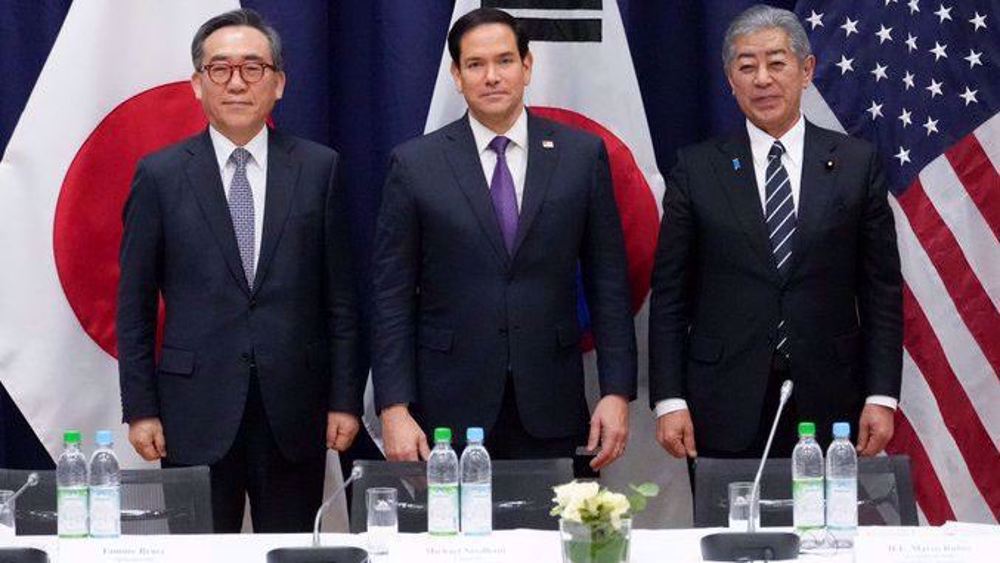Obama sparks Peru clashes, calls of 'capitalist beast'
Police in Peru have clashed with activists protesting the Trans-Pacific Partnership (TPP) deal and visiting US President Barack Obama, who is in Lima to attend the APEC summit.
Scuffles broke out as riot police prevented the protesters from marching toward the official site of the 24th Asia-Pacific Economic Cooperation (APEC) summit, which kicks off on Saturday and is expected to discuss the controversial deal.
“TPP kills” and "Leave Obama, the capitalist beast" were among the posters held during the protest.
"We came to protest against it and say no to the ratification of the treaty. This treaty was made to favor transnational business," Carmela Carbajal, one of the protesters, said.
Martin Guerra, the leader of the Socialist Left alliance, condemned the deal, saying it “destroys the country’s economy, diminishes labor rights, privatize territories and hinders access to basic medical care.”
Guerra also censured US military involvement in crises in the Middle East and Washington’s attempt to “demonize the Venezuelan people.”
He said Obama has continued a political course followed the George W. Bush administration, calling the outgoing US president even “more imperialist” than his predecessor.

The Friday demonstration, however, was largely peaceful and no arrests were reported.
Critics of the international deal in Peru and other countries potentially involved in the deal argue that it will only benefit a small number of multinational companies and will damage local employment.
The TPP was agreed upon on October 5, 2015, after five years of negotiations. The pact seeks to establish common standards for the 12 countries involved. The United States heads the group of countries.
Other signatories to the pact are Australia, Brunei Darussalam, Canada, Chile, Japan, Malaysia, Mexico, New Zealand, Singapore and Vietnam.
The ambitious deal, promising the elimination of nearly all tariffs among the 12 countries, is aimed at breaking down trade and investment barriers.
However, Peruvians argue that it is anti-democratic and favors multinational corporations at the expense of domestic interests.
They also say the TPP threatens healthcare by potentially increasing the prices of medicine, as well as threatening jobs, the environment and the rights of workers.

US, Japan, S Korea renew calls for ‘complete denuclearisation’ of North Korea

Indigenous rights activists rally on Australia Day to protest British colonization legacy

Colonialist’s monument toppled in Melbourne ahead of Australia Day
Occupied al-Qud archbishop: Palestine will never forget Nasrallah
IRGC begins major Eqtedar drill in eastern Iran
Trump tells Zelensky to secure peace with Russia or risk losing Ukraine
Arrest of Electronic Intifada journalist exposes deep Zionist footprints in Switzerland
Iran, Azerbaijan stress opposition to foreign forces in South Caucasus
VIDEO | Press TV's news headlines
Iranian president wishes health, speedy recovery for Pope Francis
VIDEO | Exhibition of innovation and Iran’s economic future









 This makes it easy to access the Press TV website
This makes it easy to access the Press TV website